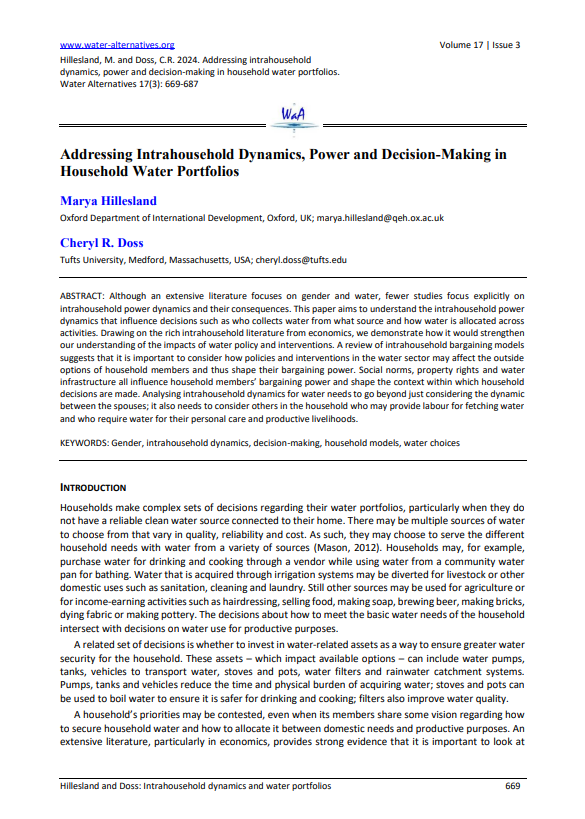Marya Hillesland and Cheryl Doss
Although an extensive literature focuses on gender and water, fewer studies focus explicitly on intrahousehold power dynamics and their consequences. This paper aims to understand the intrahousehold power dynamics that influence decisions such as who collects water from what source and how water is allocated across activities. Drawing on the rich intrahousehold literature from economics, we demonstrate how it would strengthen our understanding of the impacts of water policy and interventions. A review of intrahousehold bargaining models suggests that it is important to consider how policies and interventions in the water sector may affect the outside options of household members and thus shape their bargaining power. Social norms, property rights and water infrastructure all influence household members’ bargaining power and shape the context within which household decisions are made. Analysing intrahousehold dynamics for water needs to go beyond just considering the dynamic between the spouses; it also needs to consider others in the household who may provide labour for fetching water and who require water for their personal care and productive livelihoods.

